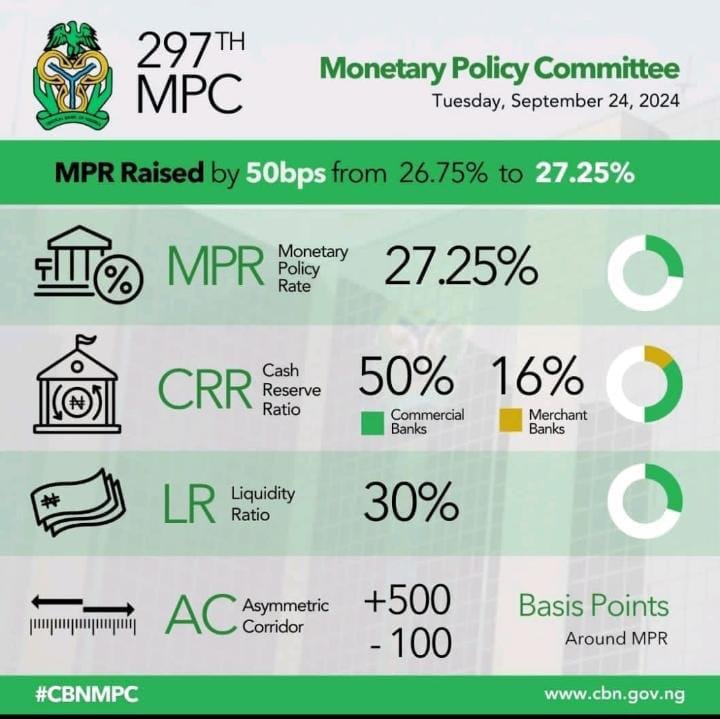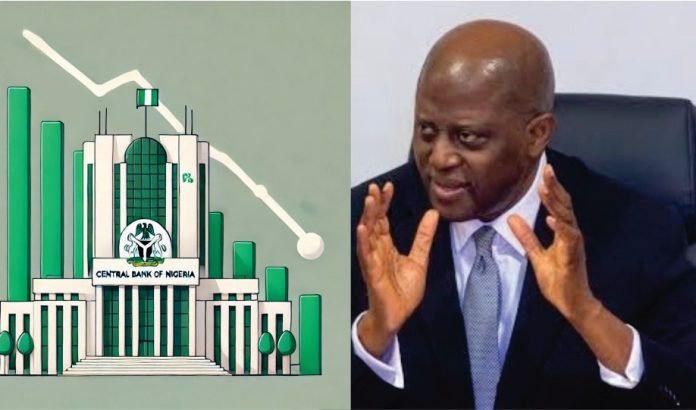The Central Bank of Nigeria (CBN) has increased its Monetary Policy Rate (MPR) by 50 basis points to 27.25%, up from 26.75%, in a bid to moderate the country’s inflation rate, which currently stands at 32.15%.
This decision was announced by CBN Governor, Olayemi Cardoso, following the 297th Monetary Policy Committee (MPC) meeting held on September 23-24 in Abuja.
Key Decisions
– MPR Increase: Raised to 27.25% from 26.75%.
– Cash Reserve Ratio (CRR): Increased by 50 basis points to 50% for Deposit Money Banks (DMBs) and to 16% for Merchant Banks.
– Liquidity Ratio (LR): Retained at 30%.
– Asymmetric Corridor: Maintained at +500/-100 basis points around the MPR.
Cardoso emphasized that the series of interest rate hikes over the past year have been crucial in moderating inflation.
“There is no economic model that portends to take people out of poverty when inflation is accelerating at the level we have seen it. There is none. And for that reason, we do not intend to relent in ensuring that we bring it under control, ” Mr. Cardoso explained.
Blames Predecessor
The CBN boss blamed the current economic challenges on the monetary policies of his predecessor, Godwin Emefiele, who served as CBN governor from June 2014 to June 2023.
Cardoso narrated that during Emefiele’s tenure, the money supply grew significantly, leading to an imbalance in the economy. “In 2015, the money supply was about ₦19 trillion, and in 2023, it was ₦54 trillion. That’s a huge increase, a very huge increase,” he noted.

Under Cardoso’s leadership, the MPR has increased by 8.5% over the past year, from 18.75% in September 2023 to 27.25% now. The naira, which exchanged for around ₦700/$1 in September 2020, now sells for over ₦1,600/$1.
However, he insistently defended the multiple rate hikes, stating they have helped restore confidence in the Naira and helped stabilize the economy.
Future Outlook
The CBN boss acknowledged the economic hardships faced by Nigerians but expressed optimism about the long-term benefits of the current monetary policies.
“These, I believe, are short-term pains and I believe we will get out of the situation we are in now.” He said it was important to reign in excess liquidity and high inflation to encourage investment in Nigeria.
The CBN’s latest policy adjustments suggest a continued commitment to using monetary tools to manage liquidity and control inflationary trends while ensuring the financial system remains robust.
Financial analysts expect these changes to impact lending rates and overall economic activity in the coming months.
Comment, Like 👍, share this article, and Follow us on our social media handles.







